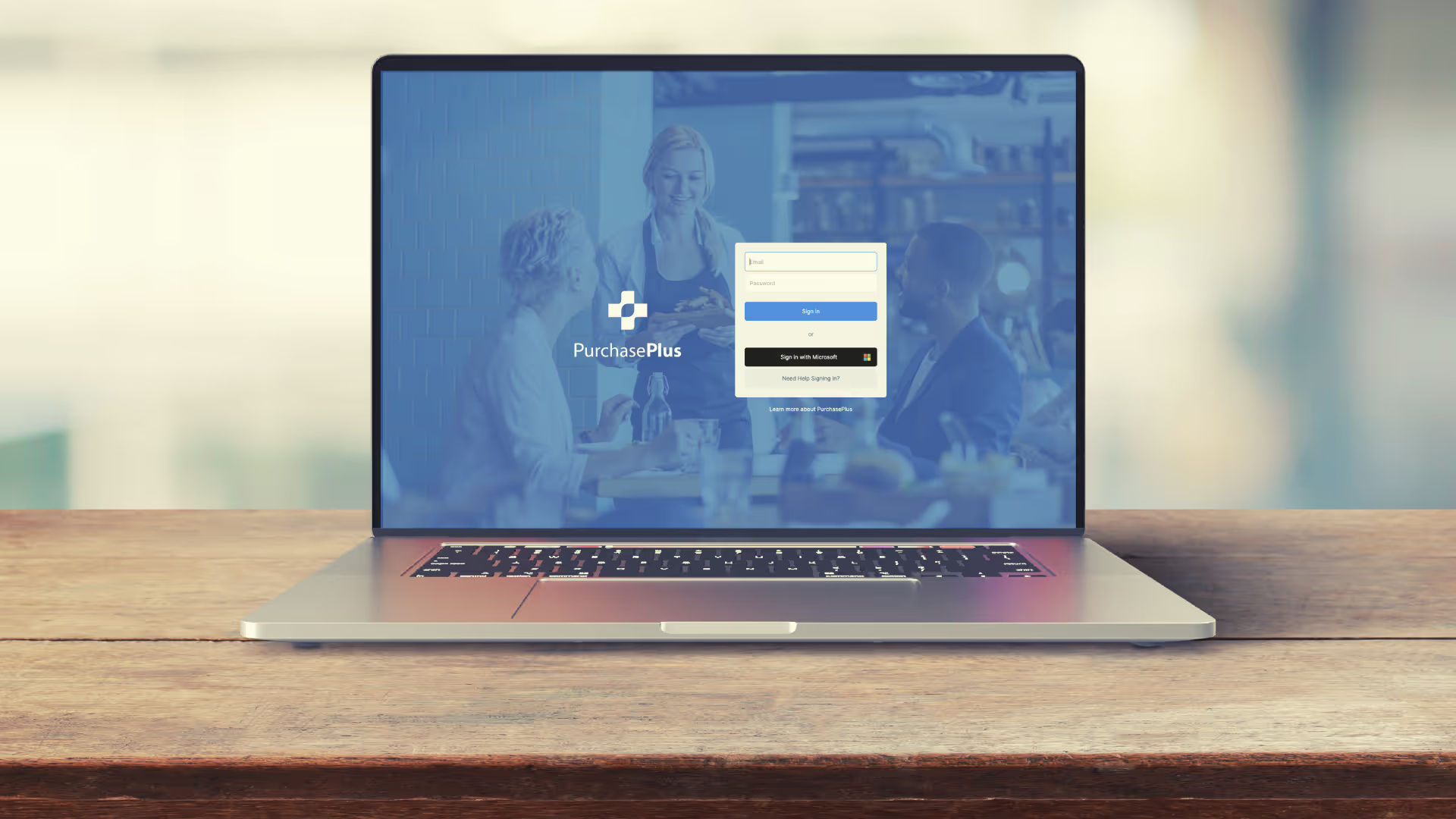Procure-to-Pay

Extreme Weather Causes Cocoa and Coffee Prices to Double and Further Food Price Volatility: Implications for the Hospitality Industry
.png)
5 Reasons Why Hotels Should Jump on the Local Purchasing Trend

Asia-Pacific Hotel Performance: Navigating 2025 with PurchasePlus
.avif)
Boosting Hotel's Restaurant Profitability in 2025

Enhancing Inventory Management in the Food Production Industry: Challenges and Solutions

Enhancing Sustainability in the $9 Trillion Hospitality Food Supply Chain

Hospitality Procurement Trends 2025: What's In and What's Out

Hotel Industry Forecast 2025: Development, Labor, F&B, and More

How to Increase Hotel Revenue: 7 Tips for Small Hotels

Navigating the Future: Key Hospitality Trends Shaping 2025

Revenue management stands as the cornerstone of profitability within the competitive hospitality industry. Hotels that master the art of strategically managing pricing, optimizing distribution channels, and meticulously analyzing performance data can achieve substantial revenue growth without expanding their physical footprint. The ability to dynamically adjust rates in response to market fluctuations and consumer behavior is paramount. Even a modest 50-room hotel, by refining its revenue management strategy, can witness an annual revenue increase ranging from $100,000 to $200,000. For larger properties, these gains are amplified, underscoring the critical role of revenue management in securing financial success. This guide delves into the fundamental principles of revenue management, the multifaceted challenges faced by hoteliers, and the transformative impact of technology and strategic procurement in enhancing financial outcomes.
What is Revenue Management?
Revenue management is the strategic application of performance data, market trends, competitor pricing, and advanced predictive analytics to accurately forecast demand and dynamically adjust pricing and distribution strategies. This discipline is indispensable for maximizing profits in the hotel industry, where inventory—room nights—is both capacity-constrained and perishable. Once a room remains unsold for a night, the revenue opportunity is irrevocably lost. By implementing a robust revenue management strategy, hotels can optimize pricing in response to real-time market conditions, leverage AI-driven analytics for precise demand forecasting, identify and capitalize on profitable distribution channels, reduce reliance on third-party bookings through strategic direct booking incentives, and minimize operational inefficiencies and procurement costs. When executed effectively, revenue management directly enhances gross operating profit (GOP) by ensuring each room is sold at the highest attainable rate while maintaining optimal occupancy levels. Industry data indicates that hotels with sophisticated revenue management systems can achieve a 15-20% increase in GOP compared to those with less refined strategies.
Understanding Hotel Revenue Management
Defining Revenue Management in Hospitality
Revenue management transcends mere room rate setting; it encompasses a comprehensive strategy involving dynamic pricing, meticulous demand forecasting, rigorous inventory control, and optimized distribution to extract maximum revenue from every available room. A well-constructed revenue strategy significantly improves key performance indicators such as revenue per available room (RevPAR), average daily rate (ADR), and gross operating profit per available room (GOPPAR). With the integration of artificial intelligence and automation, revenue management has evolved, empowering hotels to make data-driven decisions in real time. For example, AI algorithms can analyze historical data and current market trends to predict demand fluctuations with a high degree of accuracy, allowing hotels to adjust their pricing strategies accordingly.
The Evolution of Revenue Management Practices
Transition from Traditional to Modern Practices
The paradigm of revenue management has shifted from manual forecasting methods to sophisticated AI-powered pricing models. Historically, hotel managers relied on seasonal trends and historical data. Today, they leverage real-time analytics, automated pricing tools, and demand-based forecasting to maintain a competitive edge. This transition towards data-driven decision-making has made dynamic pricing, distribution channel optimization, and procurement cost control integral components of modern revenue management. For instance, automated pricing tools can adjust room rates multiple times a day based on real-time demand and competitor pricing, ensuring that hotels capture maximum revenue during peak periods.
Key Components of Effective Revenue Management
Demand Forecasting and Pricing Strategies
Accurate demand forecasting is pivotal for revenue optimization. By harnessing the power of AI and big data, hotels can predict future booking trends weeks or months in advance, dynamically adjust pricing based on prevailing market conditions, local events, and competitor rates, and strategically optimize promotions to attract high-value guests during periods of low demand. Hotels that fail to accurately forecast demand risk significant revenue loss through underpricing or suboptimal occupancy rates. For example, AI-driven forecasting can analyze data from social media, search engine trends, and local event calendars to predict spikes in demand, enabling hotels to adjust their pricing accordingly.
Distribution Channel Optimization
Strategic management of distribution channels is essential for maximizing revenue while controlling costs. A robust distribution strategy encompasses driving direct bookings through the hotel’s website to minimize online travel agency (OTA) commissions, forging strategic partnerships with corporate clients for bulk bookings, and maintaining a balanced approach to OTA partnerships to maximize exposure without over-reliance. Hotels that optimize their channel mix realize higher profitability and reduced distribution costs. For example, offering exclusive loyalty program discounts for direct bookings can incentivize guests to book directly through the hotel’s website, reducing reliance on OTAs.
Challenges Facing Revenue Managers Today
Integrating Technology with Human Expertise
While AI and automation have revolutionized revenue management, human expertise remains indispensable. Revenue managers must interpret complex data trends to fine-tune pricing strategies, adjust long-term revenue goals in response to market shifts, and leverage technology as a supportive tool rather than a substitute for informed decision-making. Hotels that effectively integrate AI-powered analytics with expert human insights achieve superior revenue management outcomes. For instance, while AI can analyze historical data to predict demand, human expertise is required to understand the nuances of local market conditions and adjust pricing strategies accordingly.
The Role of Procurement in Enhancing Revenue
Procurement’s Impact on Operational Efficiency
While revenue management primarily focuses on income generation, cost control is equally vital. Procurement plays a crucial role in revenue strategy by minimizing waste and overstocking, fostering cost-effective supplier relationships, and streamlining inventory and order processes. Hotels that digitize procurement and automate purchasing decisions achieve higher profit margins without compromising service quality. For example, implementing an automated procurement system can reduce food waste by accurately forecasting demand and ensuring that supplies are ordered in appropriate quantities.
Future Trends in Hotel Revenue Management
Leveraging AI for Predictive Analytics
The future of hotel revenue management will be increasingly driven by AI and predictive analytics. Advanced algorithms will analyze vast datasets to provide more accurate demand forecasts, personalized pricing strategies, and optimized distribution channel management. Hotels that embrace these technologies will gain a significant competitive advantage. For instance, AI-powered chatbots can provide personalized booking recommendations to guests based on their preferences and past booking history.
Sustainable Practices in Revenue Management
Sustainability is becoming a critical factor in hotel revenue management. Eco-conscious travelers are increasingly seeking hotels with sustainable practices. Hotels that implement green initiatives, such as energy-efficient solutions and sustainable sourcing, can attract a premium from these travelers. For example, hotels can partner with local farms to source fresh, sustainable ingredients for their restaurants, reducing their carbon footprint and attracting eco-conscious guests.
How PurchasePlus Solves Revenue Management Challenges
Digital Procurement and Cost Control
PurchasePlus provides hotels with a centralized procurement and revenue management solution, ensuring financial efficiency across all areas of operations. AI-powered procurement for cost control reduces overstocking and food waste, identifies real-time supplier price fluctuations, and ensures contract compliance for better pricing. The global supplier marketplace gives access to verified, top-tier suppliers, enabling hotels to source sustainable and eco-friendly products while ensuring consistent pricing and product availability. Digital purchase orders and paperless invoicing eliminate manual paperwork, providing real-time tracking of expenses and orders and supporting sustainability initiatives. By integrating PurchasePlus, hotels gain a data-driven procurement solution that complements revenue management strategies, resulting in higher profits and more efficient operations.
Conclusion
The hospitality industry's competitive landscape necessitates that hotels adopt data-driven revenue management strategies to maintain a competitive edge. By integrating AI-powered demand forecasting, optimized pricing strategies, and cost-efficient procurement solutions, hotels can maximize profitability while delivering exceptional guest experiences. PurchasePlus is the ideal solution for hotels seeking to optimize procurement and cost control, streamline supplier relationships and inventory tracking, implement AI-driven forecasting for smarter revenue management, and reduce operational waste through paperless invoicing. By adopting these strategies, hotels can enhance revenue, improve efficiency, and secure long-term profitability in 2025 and beyond.